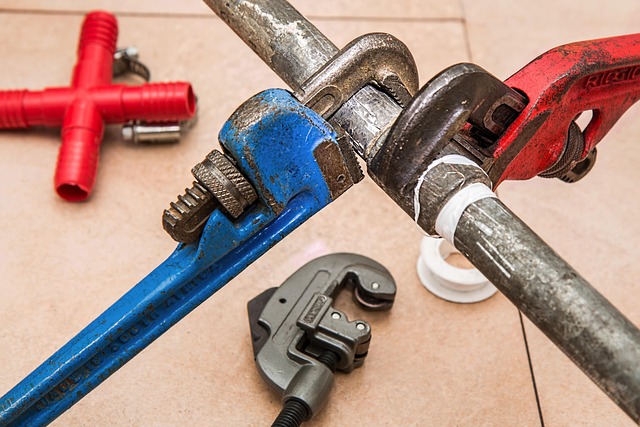Foundation leveling is crucial for addressing structural issues caused by shifting bases due to soil conditions, construction flaws, or environmental factors. Uneven foundations lead to cracks, settled floors, and door problems. Prompt concrete repair using techniques like piering, underpinning, or slab jacking stabilizes structures, prevents further damage, and ensures longevity. Regularly overlooked but vital, concrete repair corrects weaknesses due to aging or poor construction, offering solutions like resealing, epoxy injections, or replacement. Early intervention saves money and mitigates extensive repairs. Modern techniques like polyurethane injection provide efficient, effective, and environmentally friendly foundation stabilization, ideal for urban areas. Budgeting is essential for understanding concrete repair costs, while choosing the right company with referrals, credentials, and positive reviews ensures durable results.
Foundation releveling is a crucial service that ensures your home’s structural integrity and stability. As concrete structures age, they may settle or crack, requiring professional intervention. This article guides you through the process of understanding foundation releveling, its benefits, and various repair techniques, with a focus on concrete repair methods. We’ll explore when to seek these services, common causes of foundation issues, budget considerations, and tips for selecting the right concrete repair company, ensuring your home’s foundation is secure and sound.
Understanding Foundation Releveling: When and Why It's Necessary

Foundation leveling, also known as foundation repair, is a critical service that addresses issues with an essential part of any structure—its base. Over time, various factors can cause foundations to shift, settle, or become uneven, leading to structural problems and aesthetic concerns. These issues may arise from soil conditions, poor initial construction, tree roots, shifting weight, or even changes in the water table.
When a foundation is no longer level, it can result in cracks in walls, uneven floors, doors that stick or close improperly, and other signs of distress. Concrete repair becomes necessary to stabilize and restore the foundation to its proper alignment. Prompt action is crucial to prevent further damage and costly repairs down the line. Effective foundation leveling techniques, such as piering, underpinning, or slab jacking, ensure the structural integrity of a building, protecting its value and extending its lifespan.
The Role of Concrete Repair in Stabilizing Your Home's Foundation

The stability and integrity of your home’s foundation are paramount for ensuring structural soundness and longevity. One critical aspect often overlooked is concrete repair, which plays a pivotal role in stabilizing the foundation. Over time, concrete can weaken due to various factors such as aging, extreme weather conditions, poor initial construction, or soil settlement. Cracks, chips, and deteriorations in the concrete may not be immediately noticeable but can compromise the foundation’s ability to support the structure effectively.
Professional concrete repair services address these issues by offering a range of solutions tailored to specific problems. This includes resealing, filling cracks with specialized epoxy injections, or even complete concrete replacement if necessary. By correcting these defects, concrete repair stabilizes the foundation, preventing further damage and ensuring your home’s structural integrity for years to come.
Identifying Signs That Indicate a Need for Foundation Releveling Services

If your home or building has noticeable issues like uneven floors, doors or windows that stick, cracked walls, or bulging foundations, it might be time to consider foundation leveling services. These signs often indicate a more significant problem with the structural integrity of the building, which can lead to further damage if left unattended. Foundation releveling, also known as foundation repair, is crucial for addressing these issues and preventing more costly concrete repair down the line.
Uneven settling of the foundation can result from various factors like poor soil conditions, improper construction, or shifting ground waters. By addressing these problems early through expert foundation leveling services, homeowners can save money and avoid extensive renovations or even structural collapse in severe cases.
Common Causes of Foundation Settling and Cracking

Foundation settling and cracking are prevalent issues that can arise due to various factors, often leading to concerns about concrete repair. One of the primary causes is soil movement, especially in areas with expansive clay soils. When moisture content in these soils fluctuates, they expand and contract, exerting pressure on the foundation. This movement can cause the concrete to crack or settle unevenly over time. Another common reason is poor initial construction, including inadequate support, improper grading, or subpar materials used during foundation building. These structural flaws can lead to ongoing instability and potential damage that may require concrete repair services.
Additionally, extreme weather conditions play a significant role. Repeated cycles of freezing and thawing can weaken the soil and concrete, resulting in cracks and settlement. High rainfall or flooding can also contribute to these problems by softening the ground and increasing moisture levels, which exacerbate existing foundation issues. Recognizing these common causes is essential for homeowners and property managers to take proactive measures to prevent or mitigate foundation damage, ensuring the longevity of their structures and reducing the need for costly concrete repair in the future.
Exploring Non-Invasive Methods: How Concrete Repair Techniques Can Help

Foundation releveling often requires non-invasive methods that can extend the lifespan of your structure and avoid costly demolition. One such method is concrete repair, which involves utilizing advanced techniques to stabilize and strengthen existing concrete surfaces. By addressing cracks, heaves, and settlement issues early on, concrete repair services play a pivotal role in preventing further damage and ensuring structural integrity.
These methods range from simple epoxy injections to more complex carbon fiber reinforcement. Concrete repair not only provides a cost-effective solution but also enhances the aesthetics of your property. It’s a game-changer for both residential and commercial buildings, offering a long-lasting fix that complements modern construction techniques and design sensibilities.
Traditional vs Modern Foundation Releveling: A Comparative Analysis

In the realm of foundation repair, the distinction between traditional and modern techniques is notable. Traditional methods often involve labor-intensive processes such as jacking and supporting the structure with beams or pilings, which can be time-consuming and disruptive to the surrounding area. In contrast, modern foundation leveling leverages advanced technologies like polyurethane injection, structural foam, and laser-guided equipment for precise adjustments. These innovative approaches offer numerous advantages, including less environmental impact, faster completion times, and minimal disruption to nearby structures or infrastructure.
When comparing concrete repair solutions, modern techniques stand out for their efficiency and effectiveness. Polyurethane injection, for instance, fills cracks and voids with a flexible material that expands, providing long-lasting stability. Structural foam, another contemporary option, is light yet robust, easily filling large gaps and supporting the foundation from within. Unlike traditional methods that may require extensive excavation, modern techniques often preserve the existing structure, making them ideal for urban or historic settings where disruption must be kept to a minimum.
Cost Considerations: Budgeting for Foundation Releveling Projects

When considering foundation leveling services, budgeting is a critical aspect that should not be overlooked. The cost of concrete repair projects can vary significantly based on several factors such as the extent of damage, the size and complexity of the structure, local labor rates, and chosen materials. It’s essential to obtain detailed estimates from reputable contractors to ensure financial planning and avoid surprises.
Understanding the price range for foundation leveling allows homeowners to make informed decisions. Costs may include labor expenses, material costs for replacement concrete or other structural elements, and potential permits required by local regulations. Efficient budgeting can help in deciding between different repair methods and ensuring that the chosen solution aligns with both financial capabilities and long-term benefits, ultimately leading to a more stable and secure living environment.
Choosing the Right Concrete Repair Company: Tips for Homeowners

Choosing the right concrete repair company is crucial for ensuring your foundation leveling project is done effectively and durably. As a homeowner, it’s important to research and vet potential contractors thoroughly. Start by asking for referrals from friends or neighbors who have had similar work done. This can provide valuable insights into the contractor’s reliability, quality of work, and customer service.
Next, verify the company’s credentials and experience. Check if they are licensed, bonded, and insured to protect yourself from potential financial risks. Look for a concrete repair company with a proven track record in foundation leveling, and ask for examples of their previous work. Review online reviews and ratings to gauge customer satisfaction levels, and don’t hesitate to inquire about warranties or guarantees offered on their services.
